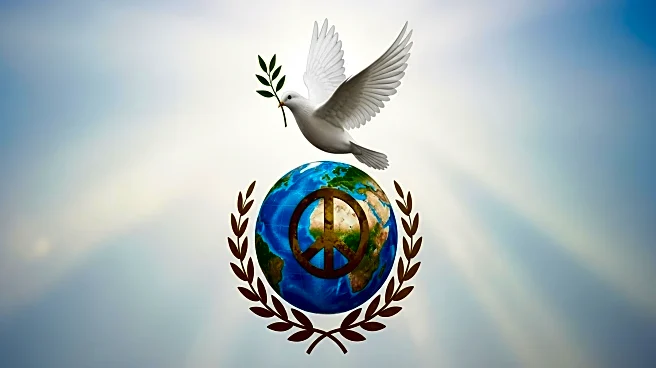What is the story about?
What's Happening?
The United States military's Central Command (CENTCOM) is set to oversee the initial deployment of the International Stabilization Force (ISF) into the Gaza Strip. This operation will involve coordination with troops from Egypt, Qatar, and Turkey, but no American forces will be deployed into Gaza itself. Navy Adm. Brad Cooper will lead a team of 200 personnel to manage the operation, focusing on oversight and ensuring compliance with the cease-fire agreement between Israel and Hamas. The initiative is part of President Trump's 20-point peace plan, which aims to establish a multinational force to police Gaza as Hamas relinquishes power.
Why It's Important?
The involvement of CENTCOM in overseeing the peacekeeping force in Gaza is significant as it underscores the United States' role in facilitating stability in the region without direct military involvement. This approach aims to foster international cooperation and support for the peace process, potentially reducing tensions and promoting security. The plan also includes training Palestinian police forces, which could lead to long-term improvements in local governance and security. The success of this initiative could influence future U.S. foreign policy strategies in conflict zones.
What's Next?
The next steps involve setting up a command room to monitor the cease-fire and coordinate with international forces. The U.S. will work with Arab and international partners to develop the ISF further, with plans to train Palestinian police forces in Gaza. The composition and size of the peacekeeping force remain to be determined, and ongoing discussions with multiple governments are expected to refine the operational details. The effectiveness of this multinational effort will be crucial in maintaining the cease-fire and ensuring the safe release of hostages.
Beyond the Headlines
The deployment of a peacekeeping force in Gaza raises questions about the long-term implications for regional stability and the role of international forces in conflict resolution. Ethical considerations include the balance between sovereignty and international intervention, as well as the potential impact on civilian populations. The initiative may also set a precedent for future peacekeeping operations in similar conflict zones, highlighting the importance of multinational cooperation and the challenges of implementing complex peace agreements.















